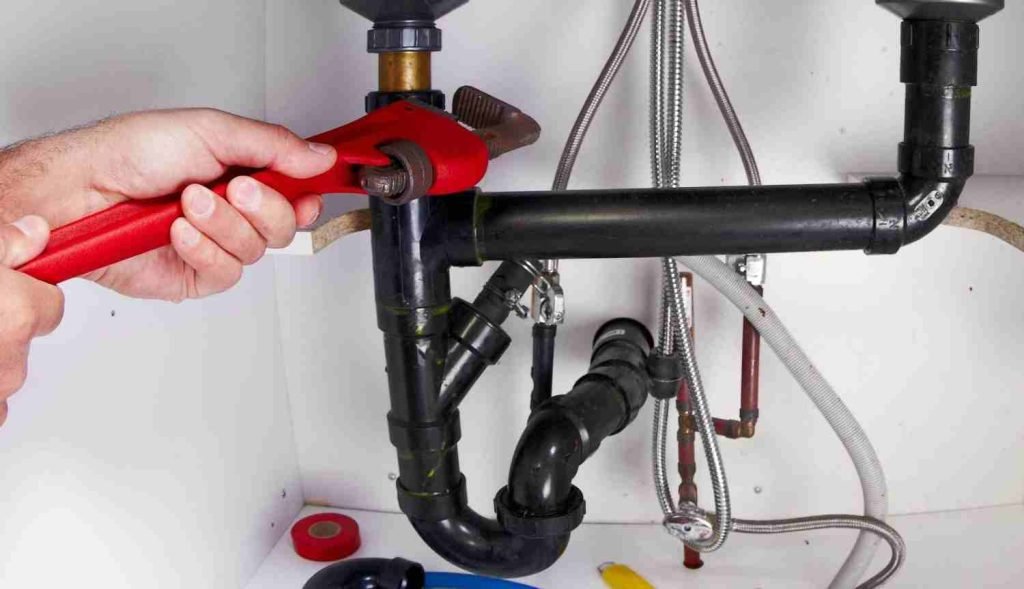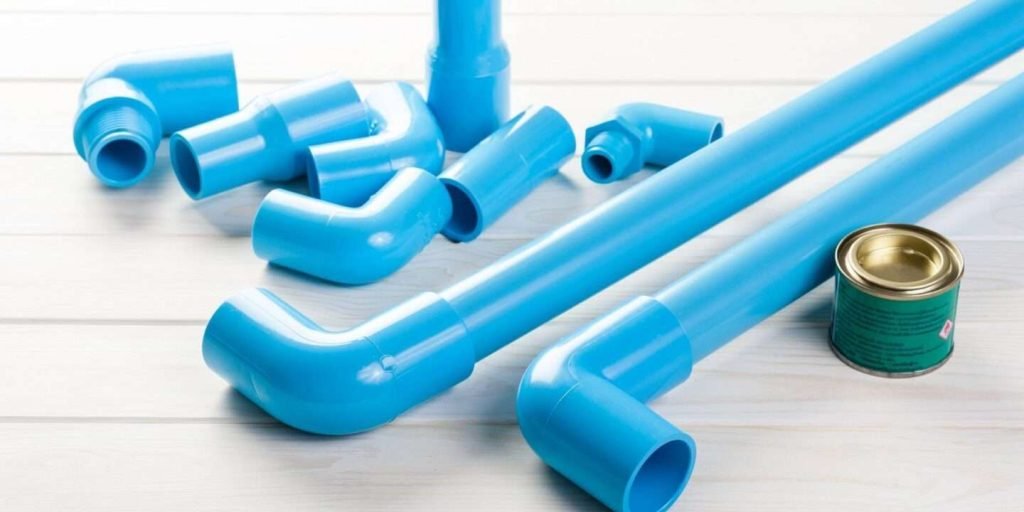In Edgewater homes, the choice of water pipes plays a crucial role in ensuring reliable water supply and maintaining the overall integrity of the plumbing system. Understanding the various types of water pipes, A.C.E. Plumbing and Home Services LLC available to help for homeowners. As each type comes with its own set of advantages and considerations. Among the common types are copper pipes, prized for their durability and resistance to corrosion, but they can be expensive. On the other hand, plastic pipes like PVC and PEX offer affordability and flexibility in installation, although they may not be as durable in certain conditions. By understanding these distinctions, homeowners in Edgewater can make informed decisions regarding their plumbing systems, ensuring efficiency, reliability, and longevity for their homes.
Copper Pipes:
Copper pipes have been a staple in plumbing systems for decades, known for their durability and resistance to corrosion. One of the primary advantages of copper pipes is their longevity; when installed correctly, they can last for decades without significant issues. This makes them an attractive option for homeowners looking for a long-term solution for their plumbing needs.
Additionally, copper pipes are relatively easy to install, allowing for flexibility in designing plumbing layouts. They are also resistant to high temperatures and UV rays, making them suitable for both indoor and outdoor applications.
However, one drawback of copper pipes is their upfront cost. Copper is more expensive than alternative materials such as PVC or PEX, which can deter budget-conscious homeowners. Additionally, copper pipes can be susceptible to damage from acidic water or aggressive soil conditions, requiring proper maintenance and treatment to prevent issues over time.
PEX (Cross-linked Polyethylene) Pipes:
PEX pipes have gained popularity in recent years due to their flexibility, ease of installation, and resistance to corrosion. Made from cross-linked polyethylene, PEX pipes can bend and flex without the need for additional fittings, making them ideal for tight spaces and complex plumbing layouts.
One of the key advantages of PEX pipes is their ability to expand, reducing the risk of burst pipes in freezing temperatures. This flexibility allows for greater durability and longevity compared to rigid materials like copper or PVC. Additionally, PEX pipes are resistant to chemical corrosion and scale buildup, ensuring a reliable water supply over time.

Another benefit of PEX pipes is their affordability compared to copper or CPVC alternatives. The material costs less, and the installation process is typically faster, resulting in lower overall project costs for homeowners.
However, PEX pipes may not be suitable for outdoor applications exposed to UV rays, as prolonged exposure can degrade the material. Additionally, some homeowners may have concerns about potential health risks associated with certain types of PEX pipes, such as those containing plasticizers or chlorine additives.
CPVC (Chlorinated Polyvinyl Chloride) Pipes:
CPVC pipes are a variation of PVC pipes that have been treated with chlorine for increased durability and heat resistance. These pipes are commonly used for hot water lines and are suitable for both residential and commercial plumbing applications.
One of the primary advantages of CPVC pipes is their ability to withstand high temperatures, making them ideal for hot water distribution systems. Unlike standard PVC pipes, which can soften and deform when exposed to heat, CPVC pipes remain rigid and structurally sound, ensuring reliable performance in demanding environments.
Additionally, CPVC pipes are resistant to corrosion and scale buildup, prolonging their lifespan and reducing the need for maintenance over time. They are also relatively lightweight and easy to install, allowing for faster and more cost-effective plumbing service.
However, CPVC pipes may not be suitable for outdoor applications or areas exposed to direct sunlight, as UV rays can degrade the material over time. Homeowners should also be aware of potential issues related to chemical compatibility, as certain chemicals or additives in water can react with CPVC and compromise its integrity.
PVC (Polyvinyl Chloride) Pipes:
PVC pipes are a versatile and cost-effective option commonly used in residential plumbing systems. Made from durable plastic, PVC pipes are lightweight, corrosion-resistant, and easy to install, making them suitable for a wide range of applications.
One of the primary advantages of PVC pipes is their affordability. PVC is one of the most cost-effective materials for plumbing, making it an attractive option for budget-conscious homeowners. Additionally, PVC pipes are resistant to corrosion, scale buildup, and biological growth, ensuring a reliable water supply with minimal maintenance requirements.
Another benefit of PVC pipes is their versatility. They can be used for both cold and hot water distribution systems, as well as for drain lines, vent pipes, and irrigation systems. PVC pipes are available in a variety of sizes and configurations, allowing for flexibility in plumbing designs and layouts.
However, PVC pipes may not be suitable for high-temperature applications, as prolonged exposure to heat can cause the material to soften and deform. Additionally, PVC pipes may become brittle over time when exposed to UV rays, leading to potential issues in outdoor or exposed installations.
Galvanized Steel Pipes:
Galvanized steel pipes were once a popular choice for plumbing systems but have largely fallen out of favor due to their tendency to corrode over time. Homes with older plumbing systems may still have galvanized steel pipes that need to be replaced.
Galvanized steel pipes are steel pipes that have been coated with a layer of zinc to prevent corrosion. While this coating initially provides protection against rust and corrosion, it can wear away over time, exposing the underlying steel to the elements. As a result, galvanized steel pipes are prone to rust and corrosion, leading to issues such as reduced water flow, leaks, and eventual pipe failure.
One of the primary drawbacks of galvanized steel pipes is their limited lifespan. While they may last for several decades under ideal conditions, galvanized steel pipes are more susceptible to corrosion in areas with high humidity, acidic water, or aggressive soil conditions. As a result, homeowners with galvanized steel pipes may experience frequent plumbing problems and higher maintenance costs over time.
Additionally, galvanized steel pipes can be challenging to work with, as they require specialized tools and techniques for installation and repair. The threading process used to connect galvanized steel pipes can also be time-consuming and labor-intensive, resulting in higher installation costs compared to alternative materials.
PE (Polyethylene) Pipes:
PE pipes, or polyethylene pipes, are commonly used for underground water supply lines due to their flexibility and resistance to corrosion. These pipes are made from high-density polyethylene (HDPE) or medium-density polyethylene (MDPE) and offer several advantages for residential plumbing applications.
One of the primary benefits of PE pipes is their flexibility, allowing for easy installation in tight or uneven spaces without the need for additional fittings. This flexibility also makes PE pipes resistant to cracking or fracturing under pressure, ensuring a reliable water supply even in challenging environments.
Additionally, PE pipes are resistant to corrosion, rust, and biological growth, prolonging their lifespan and reducing the need for maintenance over time. They are also lightweight, making them easier to transport and install compared to heavier materials like steel or copper.
PE pipes are suitable for both aboveground and underground applications, making them a versatile option for residential plumbing systems. They are commonly used for water mains, irrigation systems, and outdoor plumbing projects where durability and longevity are essential.
However, homeowners should be aware of potential issues related to UV exposure, as prolonged sunlight exposure can degrade the material and compromise its integrity. Proper insulation or burial techniques can help mitigate this risk in outdoor installations.

HDPE (High-Density Polyethylene) Pipes:
HDPE pipes are a type of PE pipe known for their high strength, durability, and resistance to corrosion. Made from high-density polyethylene, these pipes offer several advantages for residential plumbing systems in Edgewater homes.
One of the primary advantages of HDPE pipes is their exceptional strength-to-weight ratio, making them suitable for both aboveground and underground applications. HDPE pipes are lightweight yet incredibly strong, allowing for easy handling and installation without sacrificing durability or performance.
HDPE pipes are commonly used for water mains, industrial piping systems, and underground plumbing projects where durability and longevity are essential. They are also suitable for high-pressure applications, making them an ideal choice for residential plumbing systems that require reliable performance under challenging conditions.
In summary, HDPE pipes offer several advantages for residential plumbing systems, including exceptional strength, durability, and resistance to corrosion. Homeowners in Edgewater can benefit from choosing HDPE pipes for their plumbing projects, ensuring a reliable and efficient water supply for years to come.
Composite Pipes:
Composite pipes are a relatively new innovation in plumbing technology, combining the benefits of different materials to create a durable and versatile piping solution. These pipes typically consist of multiple layers, with each layer serving a specific purpose to enhance performance and longevity.
One common type of composite pipe is PPR-AL-PPR, which consists of an inner layer of polypropylene (PP) surrounded by layers of aluminum and outer polypropylene (PP) layers. This construction provides the flexibility and corrosion resistance of plastic pipes with the strength and durability of metal pipes.
Composite pipes offer several advantages for residential plumbing systems, including resistance to corrosion, scale buildup, and biological growth. They are also lightweight and easy to install, reducing labor costs and installation time for homeowners.
Additionally, composite pipes are highly durable and can withstand high temperatures and pressures, making them suitable for a wide range of plumbing applications. They are commonly used for hot and cold water distribution systems, as well as for radiant floor heating systems and industrial piping projects.
However, composite pipes may be more expensive than traditional materials like PVC or copper, which can deter budget-conscious homeowners. Additionally, installation may require specialized tools and techniques, increasing upfront costs and complexity compared to simpler piping solutions.
Conclusion:
In conclusion, understanding the different types of water pipes in Edgewater homes is essential for homeowners and residents alike. Whether it’s the traditional copper pipes known for their durability and reliability, or newer alternatives like PEX and PVC, each type comes with its own set of advantages and considerations. Being informed about these options allows homeowners to make educated decisions when it comes to maintenance, repairs, or even during home renovations. Additionally, awareness of the potential issues associated with older pipes, such as corrosion or leaks, can help in proactive maintenance and avoiding costly damages in the long run. By staying knowledgeable about the types of water pipes available and their respective qualities, Edgewater homeowners can ensure the safety, efficiency, and longevity of their home’s plumbing system. Ultimately, investing time in understanding water pipe options contributes to the overall well-being and comfort of residents in Edgewater properties.
